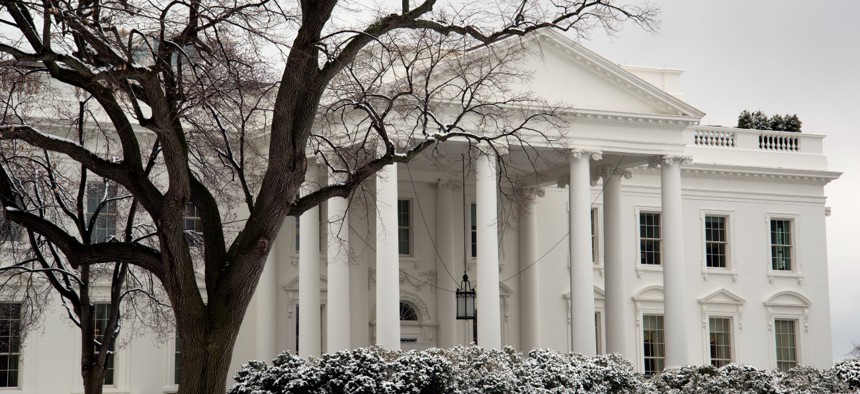
tomwachs / iStock.com
White House Watchdog, Codified Ethics Pledge, Among Suggestions for Improving Government Accountability
A new report makes recommendations on ethics, open government, pandemic response and more.
Creating an inspector general for the White House and codifying the president’s sweeping ethics pledge for political appointees are two ways to make the federal government more accountable, according to a new report.
Open the Government, a nonpartisan coalition that works to strengthen democracy and increase government accountability, released a report on Wednesday, “Blueprint for Accountability.” The report builds on a similar one released last year in response to “the Trump administration’s unprecedented secrecy, defiance of the rule of law, disregard of norms, consolidation of power and corruption.” This new report comes on the heels of President Biden’s one-year anniversary in office. The president campaigned on having a strong ethics agenda, if elected.
“Blueprint for Accountability builds upon accountability reforms enacted during President Biden’s first year in office, re-emphasizing the most urgent reforms left undone and highlighting recommendations that will ensure reforms outlast any particular presidential administration,” said the report. “To ensure accountability persists in government policy and practices beyond the next presidential term, the president should actively support legislation that will strengthen accountability protections.”
The suggestions fall into the following categories: open government, ethics, balance of power, whistleblowers, responsive government (whose suggestions are forthcoming), and pandemic preparedness and response.
One recommendation is that the president should call on Congress to codify Biden’s ethics pledge for political appointees, which Dylan Hedtler-Gaudette of the Project on Government Oversight said was “the strongest ethics executive order ever issued.” Specifically, the legislation should include bans on the revolving door between and industry, “golden parachutes,” and accepting gifts from lobbyists. It should also include enforcement mechanisms, the report recommended.
The fact that these ethics pledges are not codified leaves room for maneuvering.
For example, right before President Trump left office he rescinded his executive order with his ethics pledge, which gave his officials “zero constraints” on how they use their government positions in their next ventures, said Hedtler-Gaudette.
Other suggestions included: the president should ask congressional leadership to create an inspector general position under the Office of Government Ethics to oversee the White House; the attorney general should issue a memo to agencies with updated Freedom of Information Act guidance; and the administration should communicate to federal employees their support for whistleblowers.
As for the coronavirus pandemic, a recommendation is communicating better with the public about public health guidance. This is something the director of the Centers for Disease Control and Prevention recently said she is working on after much backlash. Another COVID-19 adjacent recommendation is that the president should call for the passage of the “Scientific Integrity Act,” which has been introduced several times.
The bill “would ensure scientists can carry out their research—and communicate it with the public—without fear of political pressure or retaliation,” said the report. “It would protect the ability of scientists to share their expertise with reporters, in scientific journals, and at scientific conferences.”
A diverse group of individuals and organizations helped shape the recommendations as well as endorsed a statement talking about the importance of accountability reforms.
“As the Biden administration officially begins its second year in office, we hope it will use the Blueprint for Accountability as a resource and guide as they look to improve transparency in [the] federal government,” said Lisa Rosenberg, executive director of Open the Government, in a press release.
Open the Government is also tracking the Biden administration’s progress, or lack thereof, on its initial recommendations that were part of its “Accountability 2021" report released in November 2020.







